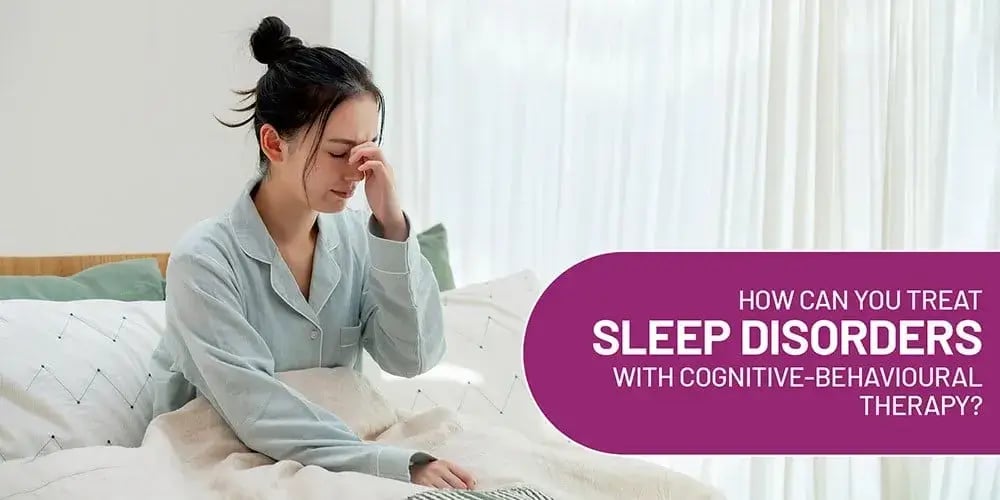Cognitive Behavioral Therapy for Insomnia (CBT-I) - Proven Approaches
Cognitive Behavioral Therapy for Insomnia (CBT-I) - Proven Approaches
Blog Article
Efficient Treatment Solutions for Handling Sleep Disorders and Enhancing Relaxing Rest
In the world of medical care, the monitoring of sleep conditions and the pursuit for peaceful rest are critical parts of overall wellness. As we navigate the detailed landscape of rest problems and look for to improve our sleep experience, a much deeper understanding of these therapy solutions may hold the secret to opening a more refreshing and meeting corrective trip.
Cognitive Behavior Modification for Sleeping Disorders (CBT-I)
Cognitive Behavioral Treatment for Sleeplessness (CBT-I) is a structured, evidence-based therapy strategy that concentrates on dealing with the hidden aspects adding to sleep disturbances. This kind of therapy aims to change habits and thoughts that aggravate sleep problems, eventually promoting healthy and balanced sleep patterns. CBT-I normally involves numerous essential elements, consisting of cognitive treatment, sleep restriction, stimulation control, and rest hygiene education and learning.
Cognitive therapy aids individuals determine and transform adverse idea patterns and beliefs regarding rest that might be impeding their capacity to drop or stay asleep. Rest constraint involves restricting the amount of time invested in bed to match the individual's real sleep period, therefore increasing sleep efficiency (sleep improvement therapy). Stimulation control techniques help establish a solid organization between the bed and sleep by urging people to visit bed only when sleepy and to avoid participating in boosting tasks in bed
Additionally, rest hygiene education concentrates on establishing healthy sleep habits, such as maintaining a consistent rest routine, creating a relaxing bedtime routine, and maximizing the sleep environment. By attending to these factors adequately, CBT-I supplies an effective non-pharmacological intervention for taking care of sleeping disorders and enhancing total sleep quality.
Rest Health Practices
Having developed the foundation of cognitive restructuring and behavior alterations in resolving sleep problems through Cognitive Behavioral Therapy for Sleeplessness (CBT-I), the focus now shifts towards checking out crucial Sleep Health Practices for keeping ideal sleep quality and general well-being.
Sleep hygiene practices incorporate an array of behaviors and ecological aspects that can dramatically affect one's capacity to drop off to sleep and remain asleep throughout the night. Regular sleep and wake times, producing a relaxing going to bed routine, and optimizing the sleep environment by maintaining it dark, quiet, and cool are important parts of great sleep hygiene. Restricting exposure to displays before going to bed, avoiding stimulants like high levels of caffeine near going to bed, and taking part in normal exercise throughout the day can additionally advertise far better rest top quality.
In addition, exercising relaxation methods such as deep breathing exercises or reflection before bed can assist soothe the mind and prepare the body for sleep. By including these rest health methods into one's daily regimen, people can develop a healthy and balanced sleep pattern that supports relaxed sleep and general well-being.
Leisure Methods and Mindfulness
Applying relaxation methods and mindfulness practices can play an essential duty in promoting a sense of tranquility and promoting high quality sleep. natural insomnia remedies. These strategies aim to silent the mind, lower anxiety, and produce an ideal environment for relaxing rest. One commonly practiced approach is deep breathing workouts, where people concentrate on sluggish, deep breaths to relax the mind and body. Modern muscle leisure entails tensing and after that launching each muscular tissue team, promoting physical leisure. Additionally, directed images can help transport individuals to a calm area in their minds, assisting in stress and anxiety reduction and enhancing rest top quality.
By including these practices right into a bedtime regimen, people can signify to their bodies that it is time to prepare and unwind for rest. In try these out general, incorporating relaxation methods and mindfulness practices can considerably add to taking care of sleep conditions and enhancing total sleep quality.

Medication Options for Sleep Disorders
After checking out leisure strategies and mindfulness practices as non-pharmacological interventions for boosting rest top quality, it is important to consider medication choices for people with rest disorders. In cases where lifestyle adjustments and therapy do not provide enough relief, medicine can be a valuable device in handling rest disruptions.
Typically recommended drugs for sleep disorders include benzodiazepines, non-benzodiazepine hypnotics, antidepressants, and melatonin receptor agonists. Antidepressants, such as trazodone, can be useful for individuals with co-occurring depression and rest disruptions - sleep deprivation help.
It is vital for individuals to seek advice from with a doctor to identify one of the most appropriate medication option based upon their details sleep problem and case history.
Light Treatment for Body Clock Regulation
Light treatment, additionally referred to as phototherapy, is a non-invasive therapy approach utilized to manage circadian rhythms and boost sleep-wake cycles. This therapy includes direct exposure to brilliant light that imitates natural sunshine, which aids to reset the body's internal clock. By revealing individuals to particular wavelengths of light, usually in the early morning or night depending upon the preferred effect, light therapy can properly change the circadian rhythm to advertise wakefulness throughout the day and improve restful rest during the night.
Research study has actually shown that light treatment can be specifically useful for individuals with body clock conditions, such as postponed sleep phase syndrome or jet lag. It can also be handy read what he said for those experiencing seasonal affective condition (SAD), a sort of anxiety that usually takes place throughout the winter season months when all-natural light exposure is reduced. Light therapy is generally well-tolerated and can be utilized together with other treatment methods for rest problems to optimize end results and enhance total sleep top quality.
Conclusion
In verdict, reliable treatment solutions for managing sleep problems and enhancing peaceful rest include Cognitive Behavioral Treatment for Sleeping Disorders (CBT-I), sleep hygiene methods, relaxation strategies and mindfulness, medication options, and light treatment for circadian rhythm law. These strategies can aid individuals boost their sleep high quality and overall wellness. It is very important to speak with a doctor to establish one of the most ideal method for dealing with sleep concerns.
As we navigate the detailed landscape of rest disorders and look for to enhance our sleep experience, a deeper understanding of these therapy remedies might hold the trick to opening a more rejuvenating and fulfilling restorative trip.
Sleep limitation involves limiting the quantity of time spent in bed to match the person's actual sleep period, thereby raising sleep performance. Consistent rest and wake times, producing a relaxing bedtime regimen, and optimizing the rest atmosphere by keeping it dark, silent, and cool are essential parts of excellent rest health. Light treatment is generally well-tolerated and can be utilized in combination with various other therapy techniques for rest problems to optimize results and enhance total sleep quality.

Report this page